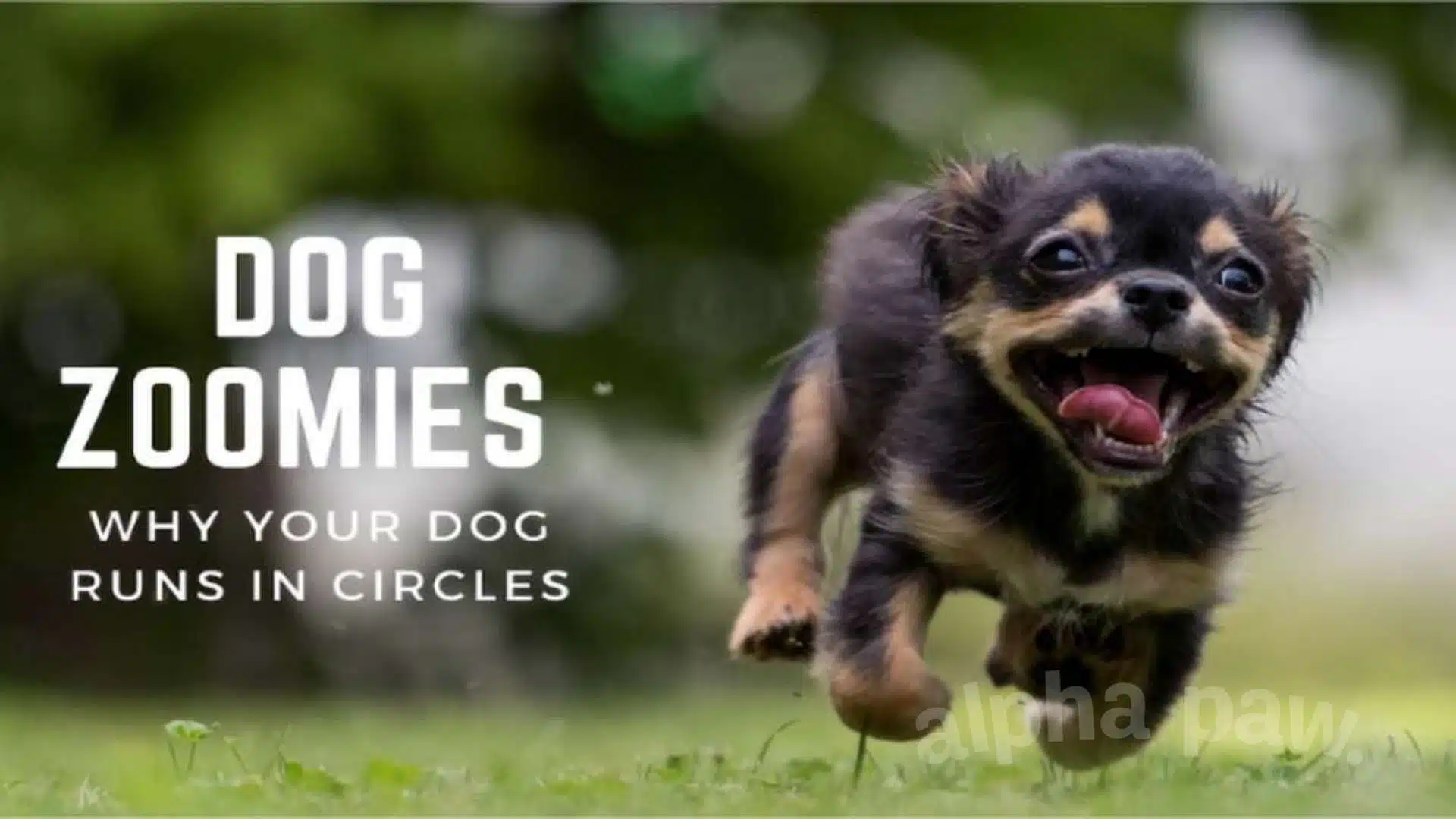


What are dog zoomies? Most dog owners are very familiar with the explosive bursts of energy that your dog experiences when you let them out after having been gone all day. Your dog frantically runs in circles, and it almost seems like they are going a little crazy.
These intense bursts of energy are called zoomies. The technical term for zoomies is Frenetic Random Activity Periods (FRAPs). Zoomies are a completely normal behavior. They occur because your dog has a lot of energy, and they need a way to release it. Your dog will sprint and run in circles because they are very excited and energetic.
Many people wonder if their dog is going crazy when they see them do zoomies. Actually, zoomies are a very normal behavior in dogs. Your dog isn’t going crazy, they are just releasing some pent-up energy. Dog zoomies are their way of releasing their stored energy.
Dog zoomies can occur at any time of the day or night. Zoomies seem to be especially common after your dog has been alone all day, after a long nap, after bathtime, or when there is company over. Zoomies also occur sometimes after stressful situations such as veterinary visits.
The AKC reported that zoomies may occur more frequently in younger dogs with more energy and occur more often if your dog has few opportunities to exert their energy.
As a veterinarian, I often get asked, “why does my dog go crazy at night?” Often pet owners report that zoomies are happening right before bedtime or in the middle of the night. If your dog is getting zoomies at night, they are probably not getting enough exercise and stimulation throughout the day. Because zoomies are a release of excess energy, your dog is likely going to sleep with too much energy. You may need to exercise your dog more during the day to decrease night zoomies.
Sometimes dogs can nip or bite when they are excited and doing zoomies. If your dog has a tendency to get a little too excited during zoomies, it is important to say safe and not get bit by your dog. Do not run or chase your dog while they are having zoomies as this may make the behavior worse. Also, be sure to not let your dog play with a child while doing zoomies because they could easily knock them over and hurt them. I knew a child that broke his arm from being knocked over by a dog doing zoomies.
In general, zoomies are not dangerous. Occasionally, if a dog twists too quickly while doing zoomies, especially an older dog or a dachshund with back problems, they can become injured. Usually, for young dogs, zoomies are quite safe. It is important to make sure that your dog is not on a slippery floor or near stairs when they do zoomies as this can create dangerous situations where your dog can get hurt.
If your dog is displaying odd behavior like excessively circling, bumping into things, or strange eye movements, then you should have your dog examined by a veterinarian to ensure that there are no neurological issues causing this behavior. I recommend taking a video of your dog’s behavior so you can show the veterinarian at your appointment. Often with video, a veterinarian will be able to tell if this is normal dog zoomie behavior or something more serious.
You should not be overly worried if your dog has occasional zoomies. This is a normal behavior for dogs. If you would like to decrease the amount of zoomies that your dog gets, you should provide your dog with adequate exercise and mental stimulation. If you suspect your dog has high levels of anxiety, there are calming treats for dogs available, but keep in mind that you are not addressing your dog’s mental and physical needs, you are just calming them down. Also, you should always consult with your vet prior to starting any supplements to ensure that they are safe for your dog.
Here are a few suggestions to reduce the number of zoomies:
Supporting your dog’s mobility is essential for their overall well-being, and there are excellent supplements designed for this purpose. Explore top-rated products such as joint supplements with glucosamine and chondroitin, known for promoting healthy joints and reducing stiffness.
It is normal for certain dog breeds to have high levels of energy. If your dog is driving you crazy, as a pet owner, you must find ways to provide mental stimulation and physical stimulation for your dog. The best way to calm your dog is to give your dog plenty of exercises. Going for a long walk several times a day will help to physically stimulate your dog.
Also, mental stimulation is very important. You can provide your dog with puzzle toys or fun Bouncy Fish Toys to help calm down your dog. Providing your dog with a Kong can also help distract them and provide them with some stimulation. If you are interested in learning more about ways to calm down your dog, you should speak with your veterinarian. In addition, always speak with your veterinarian if you are considering starting your pet on any new medications or supplements.

The medical, nutritional, or behavioral advice we provide is intended for informational and educational purposes only. Our editorial content is not a substitute for formal or personalized medical advice from a veterinary professional. Only board-certified veterinary specialists who have examined your pet should diagnose medical conditions, provide personalized treatment, or prescribe appropriate medication. For questions regarding your pet’s health, or if your pet is exhibiting signs of illness, injury, or distress, contact your veterinarian immediately. Never disregard professional medical advice or delay in seeking it because of something you have read on our site.